

Staff and stakeholders have their privacy rights violated, as we noted last month and again this morning. Under normal circumstances, Benoît Battistelli, António Campinos and their ilk would risk arrest for what they do at the EPO. But they have diplomatic immunity and half a decade ago we saw Battistelli getting away with very serious crimes, e.g. visitors subjected to illegal surveillance on EPO premises (it was all over the media at the time, back when the media actually bothered covering EPO scandals).
 The Commission's whitewash of corruption at the EPO means that EU law won't be enforced and rules won't be honoured; just like that... more abuse, more immunity, more impunity...
The Commission's whitewash of corruption at the EPO means that EU law won't be enforced and rules won't be honoured; just like that... more abuse, more immunity, more impunity...
Rose Hughes (AstraZeneca and EPO apologist) has just been advertising a sham exam (EQE) with extra surveillance now added to it. The corruption associated with EQE was covered here in a series earlier this year. Nobody was held accountable. Nobody.
Based on this post, the EPO adopts more spyware; basically malware. It's as if COVID-19 makes 'magic' and renders the illegal "excusable" ever so magically. To quote: "The EPO has released the first detailed information for candidates on the arrangements for the online pre-EQE and EQE next year. Full details can be read here. The examinations are scheduled to take place the week of 1 March 2021. The online exams will be taken using the dramatically named "LockDown browser", which candidates are being advised to log in to 20 minutes before the exam."
"A lot of things like the "LockDown browser" are being imposed on students despite being in violation of human rights."So the data is going to Microsoft's next-door neighbours at Respondus, who are flirting with GDPR violations and looking for cleverly-worded excuses. A lot of things like the "LockDown browser" are being imposed on students despite being in violation of human rights. Lack of actual enforcement is a very serious problem. Laws without enforcement are toothless tigers.
We'd like to bring up an old document (2019) [PDF] in which staff representatives at the EPO named several GDPR violations. Here's the full document for the PDF-hostile/averse folks.

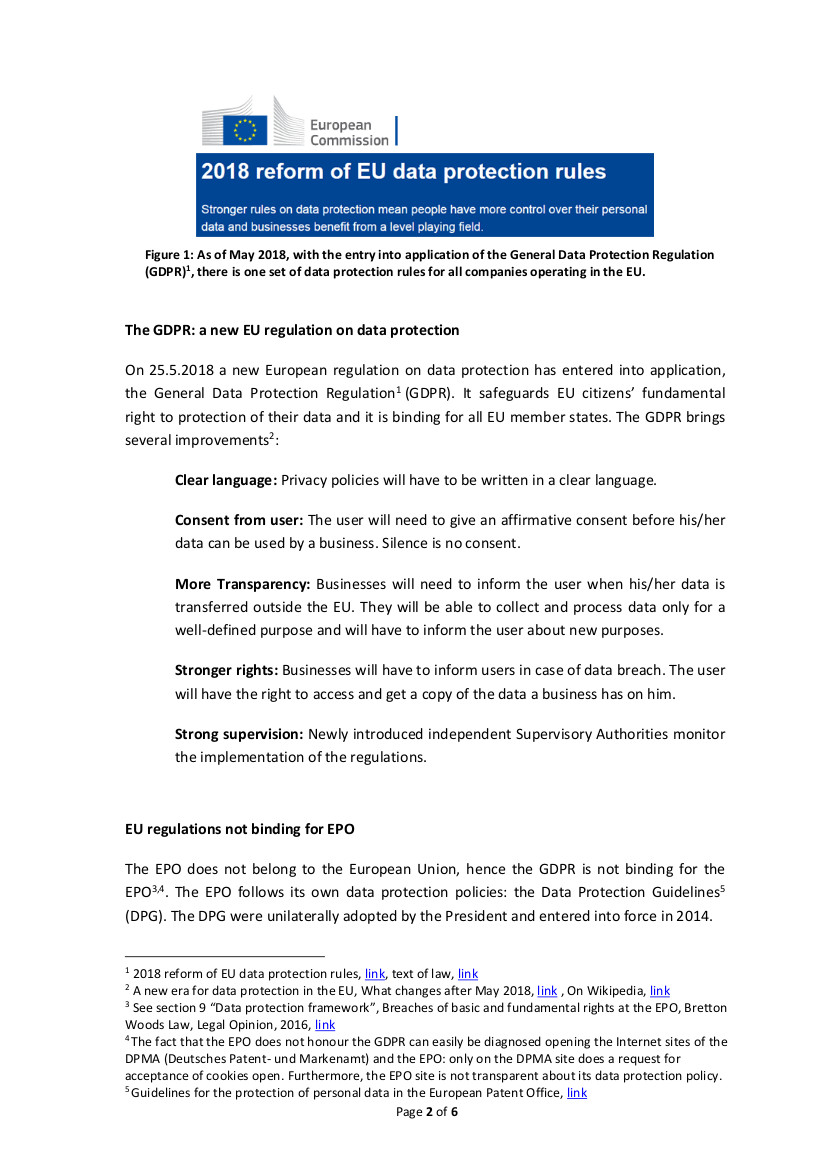
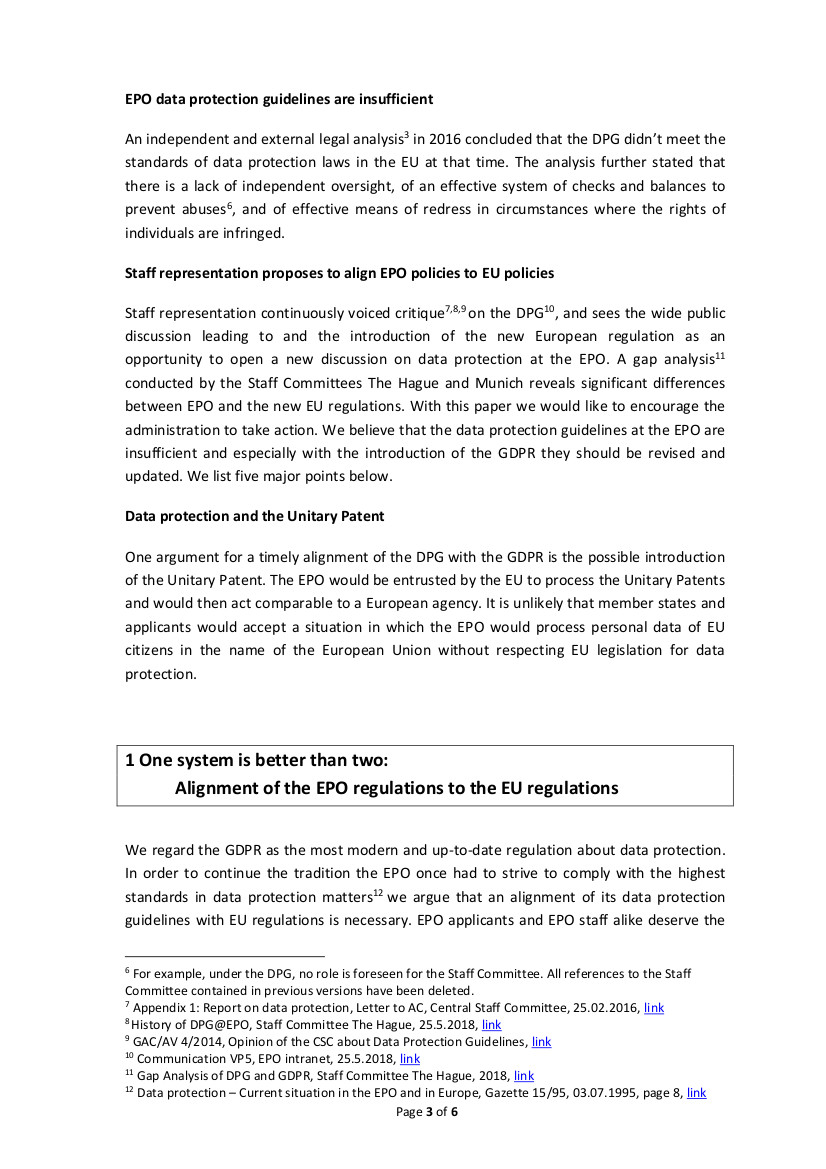
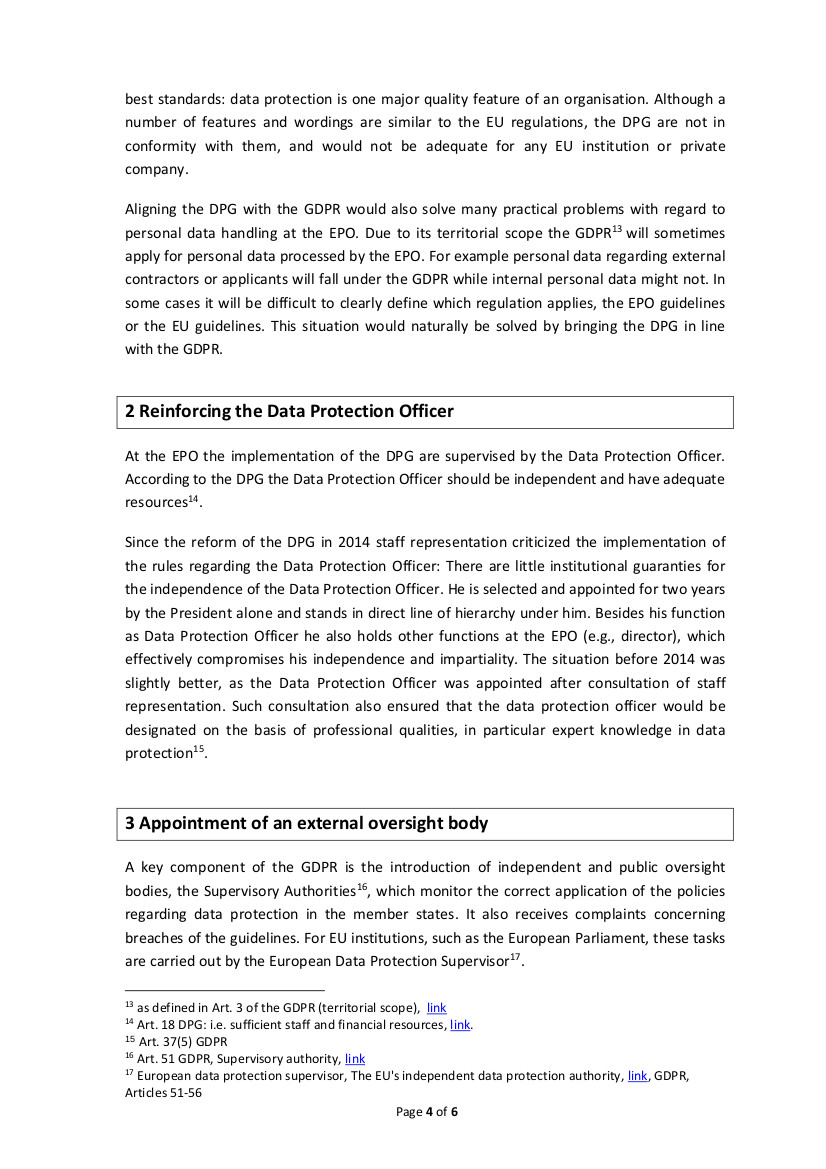
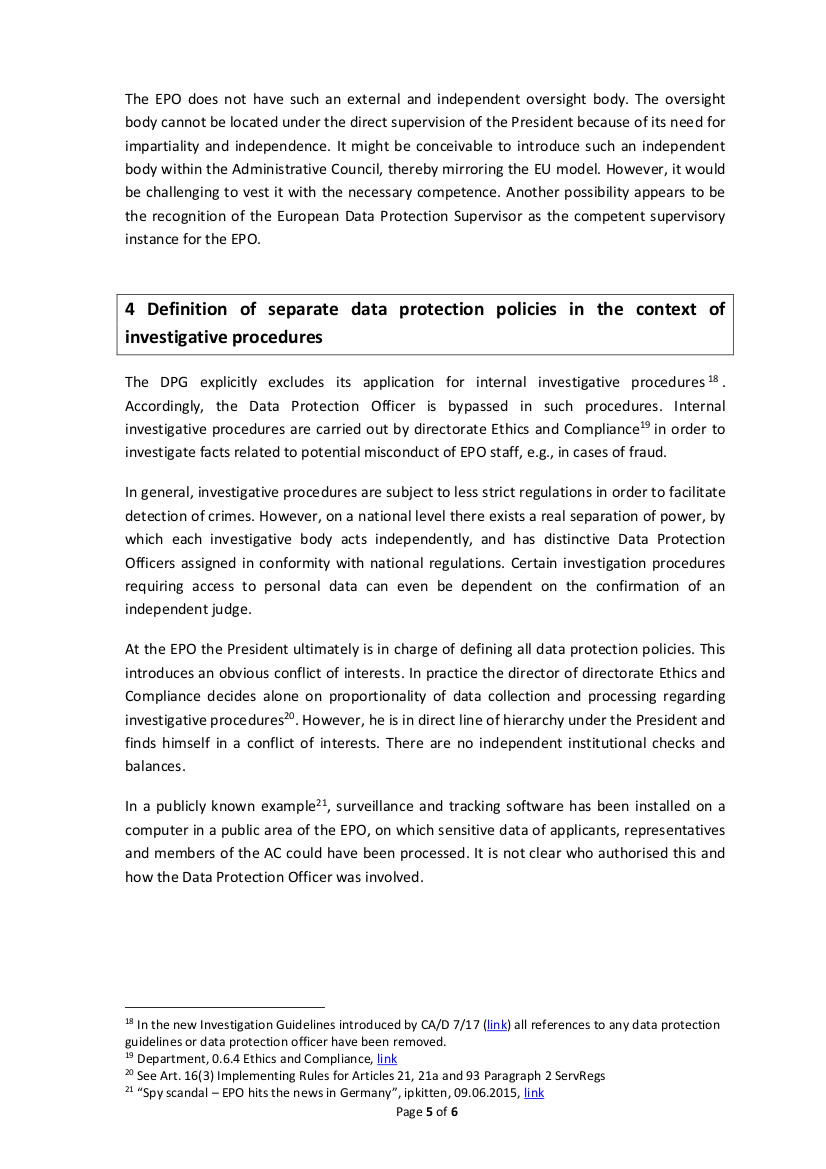
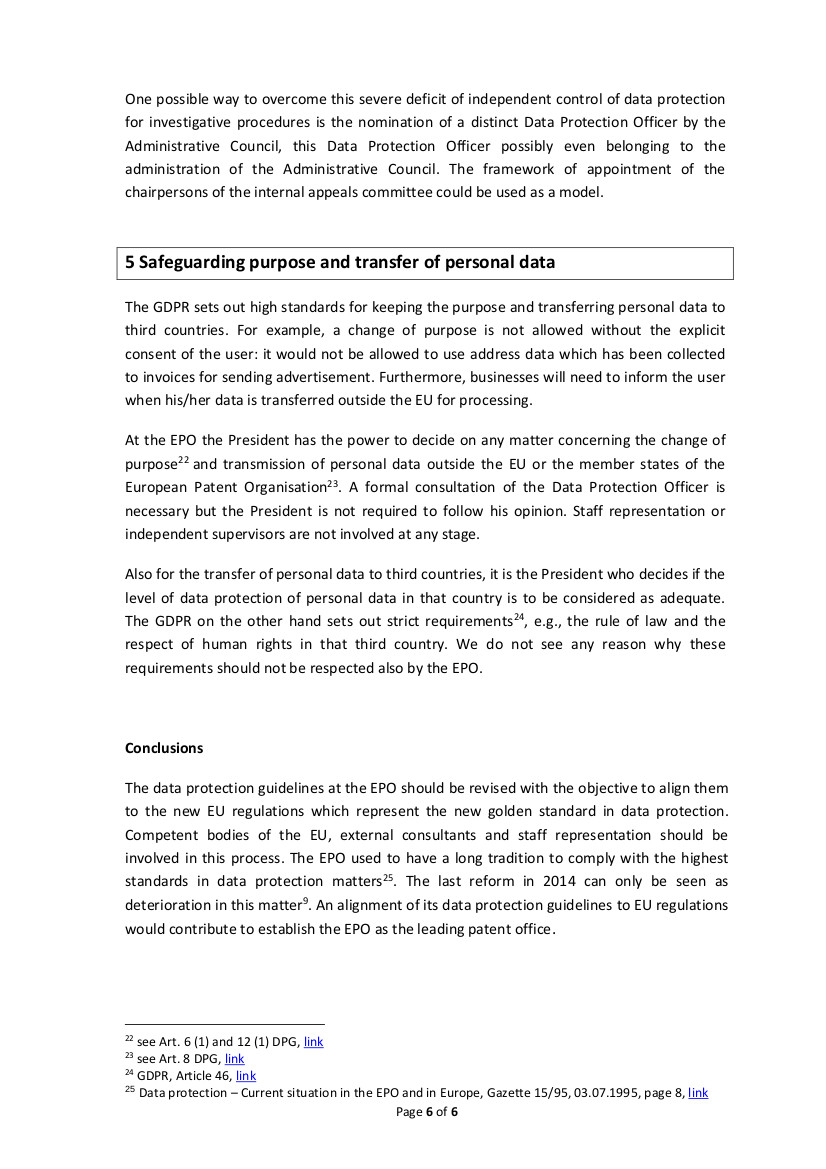
Notice the part about the UPC: "In the near future the EPO might be entrusted by the EU to process patent application in the framework of the Unitary Patent. It is unlikely that member states and applicants would accept a situation in which the EPO would process personal data of EU citizens in the name of the European Union without respecting EU legislation for data protection."
Here's the corresponding and more concise message to EPO staff:
Data protection @ EPO, quo vadis?
Data protection guidelines at the EPO should be aligned to European regulations
[...]
New EU Data Protection Regulations
New regulations for data protection have been introduced by the EU in 2018, the General Data Protection Regulation[1] (GDPR). It safeguards EU citizen’s fundamental right to protection of their data and it is directly binding for all EU member states. However, it is not binding for the EPO.
EPO has its own data protection policies
The EPO follows its own data protection policies: the Data Protection Guidelines[2] (DPG). Staff representatives pointed numerous times to the gap between the DPG and the European regulations. Commenting on the GDPR, former VP5 Raimund Lutz stated that the EPO is very close to EU legislation, because the EPO always has applied the “highest level of data protection [...] including the nomination of an independent Data Protection Officer (DPO)”. Furthermore, a recent audit report (2017) has been cited which “has confirmed a close alignment with the GDPR legal framework.”[3]
Data protection and the Unitary Patent
In the near future the EPO might be entrusted by the EU to process patent application in the framework of the Unitary Patent. It is unlikely that member states and applicants would accept a situation in which the EPO would process personal data of EU citizens in the name of the European Union without respecting EU legislation for data protection.
EPO data protection guidelines do not meet EU standards
An independent and external legal analysis[4] in 2016 concluded that the DPG did not meet the standards of data protection laws in the EU at that time. The analysis further stated that there is a lack of independent oversight, of an effective system of checks and balances to prevent abuses, and of effective means of redress in circumstances where the rights of individuals are infringed.
Staff representation proposes to align EPO policies to EU policies
Staff representation finds that the introduction of the new European guidelines is an opportunity to re-open the discussion on data protection at the EPO: The data protection policies at the EPO can be improved in order to better protect the data of staff and applicants/users alike. The EPO used to have a long tradition to strive to comply with the highest standards in data protection[5]. The last reform in 2014 can only be seen as deterioration in this matter[6]. An alignment of its data protection guidelines to EU regulations would be a step towards a modern data protection framework and would contribute to establish the EPO as the leading patent office.
Staff representation suggests to:
The EPO policies on data protection should be aligned to the EU regulations, which present at the moment the most comprehensive and modern legislation in data protection matters.
The role of the Data Protection Officer, who is responsible for the implementation of the EPO data protection, should be enforced and its independence should be assured.
An external and independent oversight body should be appointed with the task to monitoring the application of data protection policies at the EPO.
Separate data protection policies should be defined for investigative procedures (e.g., misconduct or fraud). Its implementation should be the responsibility of a distinct Data Protection Officer nominated, e.g., by the Administrative Council.
Rules to safeguard data processing should be mended. For example, transfer of personal data to third countries and the change of purpose, e.g., using personal data for purposes for which the user has not consented to, should be tightly regulated.
[...]
[1] GDPR, link
[2] Guidelines for the protection of personal data in the European Patent Office, link
[3] VP5 announcement on Intranet, 25.05.2018, link
[4] See section 9 “Data protection framework”, Breaches of basic and fundamental rights at the EPO, Bretton Woods Law, Legal Opinion, 2016, link
[5] Data protection – Current situation in the EPO and in Europe, Gazette 15/95, 03.07.1995, page 8, link
[6] GAC/AV 4/2014, Opinion of the CSC about Data Protection Guidelines, link